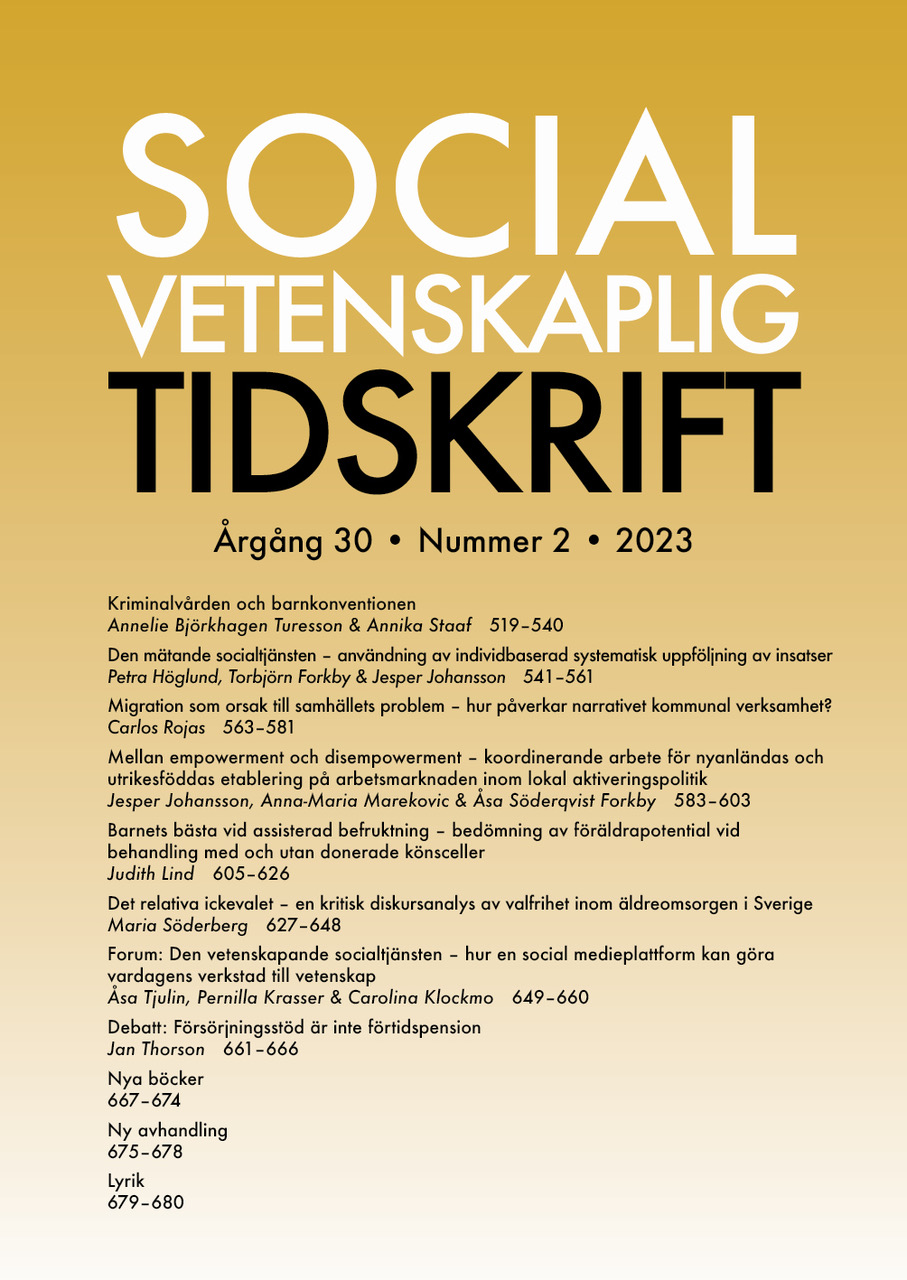Det relativa ickevalet
- en kritisk diskursanalys av valfrihet inom äldreomsorgen i Sverige
DOI:
https://doi.org/10.3384/SVT.2023.30.2.4470Keywords:
non-choice, freedom of choice, elderly care, critical discourse analysisAbstract
The relative non-choice – a critical discourse analysis of freedom of choice in elderly care in Sweden
The aim of this study is to reveal how non-choice is represented in a context advocating freedom of choice. This is developed by investigating how the non-choice of a provider in elderly care is represented in national policy documents. The concept “non-choice” refers to the absence or limitation of a choice of provider. The empirical data consist of ten documents on freedom of choice written during the 21st century, a particularly expansive period for freedom of choice in Sweden. Fairclough’s critical discourse theory is used as the primary theoretical framework, and methodological inspiration from Bacchi’s approach to policy analysis is also applied. Prominent features in the findings are that there is a tendency to represent non-choice: 1) as a choice caused by incapacity, 2) as an active choice, 3) as an uninformed choice, and 4) as a predetermined choice. The result also shows that the meaning of non-choice is unclear regarding when family members and care managers have a decisive influence on the outcome of the choice and when a predetermined non-choice is activated as an obvious measure. In the social debate, much attention has been devoted to whether to introduce customer choice in elderly care at municipal level. We are now in a situation when more attention must be devoted to non-choice in the social debate, including its meaning and application.
Downloads
Published
How to Cite
Issue
Section
License
Copyright (c) 2023 Maria Söderberg

This work is licensed under a Creative Commons Attribution 4.0 International License.
Allt material i Socialvetenskaplig tidskrift publiceras sedan 2022 (Vol 28 Nr 2) med omedelbar öppen tillgång (open access), under Creative Commons-licensen CC BY 4.0. Upphovsrätten till innehållet tillhör respektive författare.
Allt innehåll i tidskriften är fritt tillgängligt utan kostnad och får fritt läsas, laddas ned, kopieras, delas, skrivas ut och länkas. När innehållet används måste författare, källa och licens anges. Författaren kan fritt göra sin publicerade text tillgänglig på institutionella och internetbaserade arkiv, exempelvis sitt lärosätes digitala arkiv eller andra tjänster för detta.
Inga publiceringsavgifter tas ut vid publicering i Socialvetenskaplig tidskrift.


